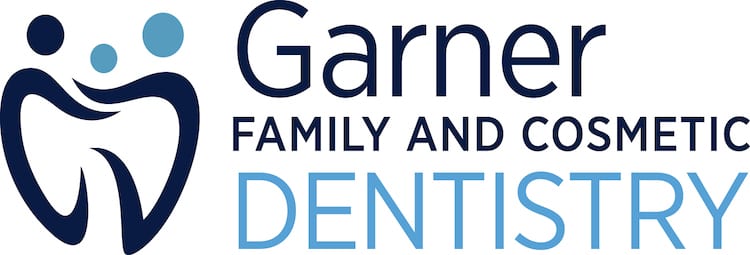If you wake up to a sore jawbone, tooth sensitivity, or slight headaches, these are all warning signs that you have been grinding your teeth. While it’s common for people to grind their teeth or clench their jaw occasionally, tooth damage can occur if done too often.
Commonly referred to as bruxism, chronic teeth grinding can occur for multiple reasons, and when it does, Garner Family and Cosmetic Dentistry is here to help!
Teeth Grinding Treatment Options
Dr. Matthew Jenne and our team will work with you to understand the underlying cause of your bruxism. He will also evaluate you for tooth damage or gum inflammation. We will use all of this information to create your personalized treatment plan.
We recommend many of our patients who experience chronic teeth grinding to utilize a night guard. A night guard is a custom-made covering worn over the teeth that allow the jaw muscles to relax and prevents tooth damage.
Similar to a sports mouthguard, a night guard is removable and can be used on an as-needed basis. Through the use of a night guard, we are typically able to relieve patients of all the uncomfortable symptoms brought on by teeth grinding.
Understanding Teeth Grinding
Teeth grinding can be hard to notice, as most people do this in their sleep or when they are dealing with high stress levels. Additionally, people with misaligned teeth are more likely to experience teeth grinding. Although bruxism is common in young children, most people grow out of it by the time they reach adulthood.
Dr. Angela Wingate looks for the following signs of teeth grinding during your routine visits:
- Worn or “flat” teeth
- Chipped, cracked teeth
- Changes in your bite
- Clicking or popping jaws
If you notice any of these symptoms yourself, you should contact our office to discuss potential treatment options in order to avoid permanent tooth damage.
Teeth Grinding FAQs
What Can I Do to Stop Grinding My Teeth naturally?
If you are struggling with grinding your teeth, any food with caffeine may cause the issue to worsen. The first thing that patients should do if they realize that they are grinding their teeth is to cut out caffeine and alcohol. Patients should also avoid chewing ice, pens, fingernails, etc.
What does teeth grinding pain feel like?
Patients typically describe pain from teeth grinding as an achy pain, usually in the back of a patient’s mouth. Sometimes patients may describe a sharp pain, but in most cases, the pain is muscular making it an achy feeling.
Many patients grind their teeth more on one side of their jaw; some may be able to tell which side the issue is worse based on pain levels.
What is the difference between bruxism and clenching?
The clinical term for grinding one’s teeth is bruxism. Bruxism is when a patient grinds their teeth together in a back and forth motion. This may cause teeth to wear down and flatten at the bottom.
Clenching is when a patient holds their teeth together tight, biting down and tightening muscles, however, there is no motion of grinding between the teeth and therefore significantly less damage.
Can you reverse teeth grinding?
You can reverse teeth grinding, however the success of this varies from patient to patient. Stress is the leading cause of teeth grinding, so reducing stress can be an effective way to limit and reverse the habit of grinding teeth.
What damage can grinding teeth cause?
Teeth grinding can cause damage to tooth enamel which may cause teeth to chip, break, or loosen. Teeth grading may also damage restorations such as crowns, bridges, and implants.
Can grinding cause teeth to move?
Teeth grinding may cause teeth to shift over time. This is a less common side effect of tooth grinding, and it takes an extended time for this to occur, however extended untreated teeth grinding may cause teeth to shift and become misaligned.
How do I stop grinding my teeth during the day?
Place the tip of your tongue between your teeth if you’ve noticed that you clench or grind at work or during the day. This exercise helps you learn how to relax your jaw muscles. Holding a warm washcloth against your cheek will also help relax your jaw muscles at night.
